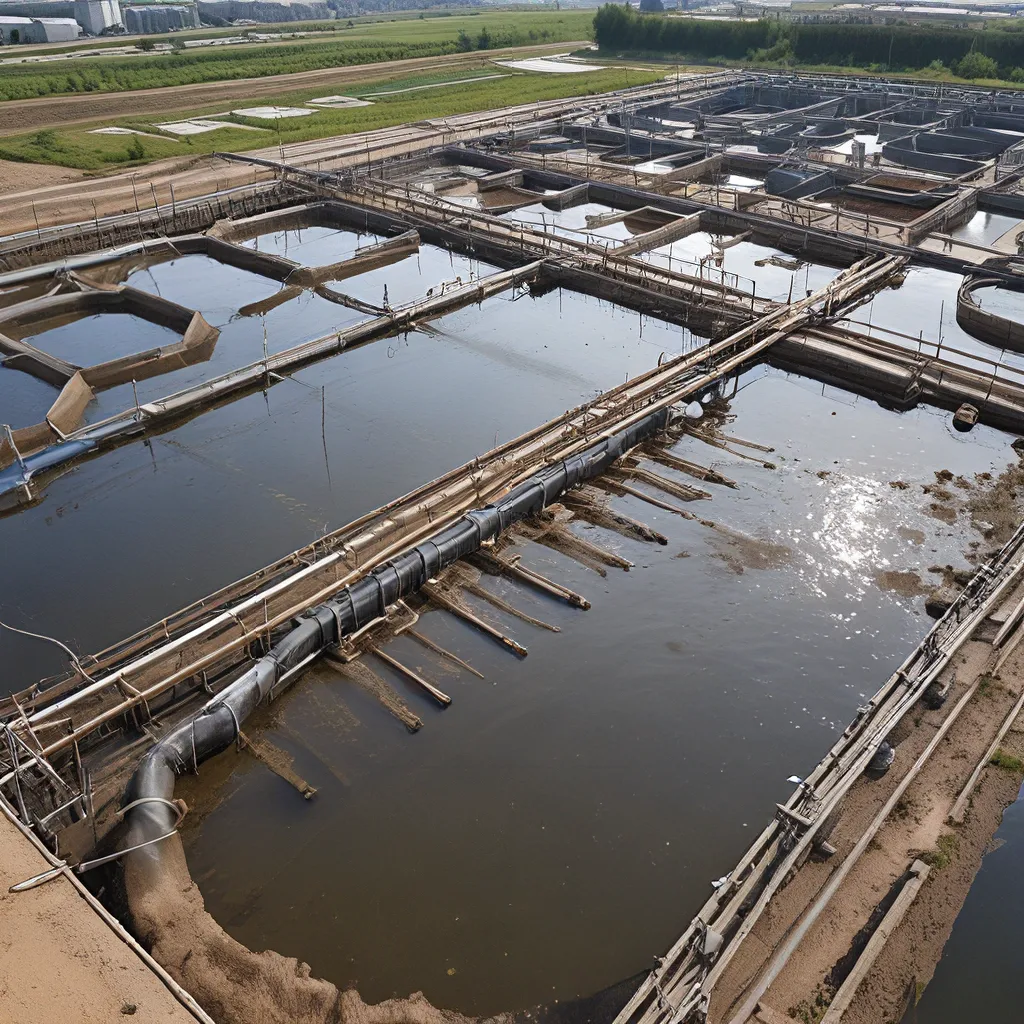
As we navigate the complexities of our rapidly changing world, one thing has become abundantly clear: the intricate water-energy-food nexus is the beating heart of sustainable development. This delicate balance, where water, energy, and food production intersect, is the key to ensuring our communities thrive in the face of mounting challenges.
Unraveling the Water-Energy-Food Nexus
Let’s start by unpacking this concept a bit. Agriculture is the largest consumer of the world’s freshwater resources, and over a quarter of the energy used globally is spent on food production and supply. Similarly, energy generation is highly water-intensive, from coal-fired power plants to nuclear reactors. It’s a complex, interdependent system that is rapidly being stretched to its limits.
As our global population continues to grow, along with rapid urbanization and changing dietary preferences, the demand for all three – water, energy, and food – is skyrocketing. It’s a veritable perfect storm, with pressure on the nexus threatening to derail progress on crucial Sustainable Development Goals (SDGs) like poverty, hunger, and environmental sustainability.
Governments Grapple with Competing Priorities
Governments around the world are grappling with the challenge of balancing these competing priorities. On one hand, they must ensure water security to support agricultural productivity and energy generation. On the other, they must invest in renewable energy sources that are less water-intensive, like hydropower and geothermal energy.
It’s a delicate dance, and one that requires integrated management of water, food, and energy resources. Policymakers must work collaboratively across domains, focusing on ecosystem protection, sustainable agriculture, and innovative green infrastructure solutions.
Wastewater Treatment: A Nexus Solution
This is where wastewater treatment comes into play as a crucial piece of the puzzle. By efficiently treating and recycling wastewater, we can not only conserve precious freshwater resources, but also recover valuable nutrients and energy in the process.
Imagine a world where wastewater is no longer seen as a costly burden, but rather as a renewable resource. Through advanced treatment technologies and holistic management strategies, we can transform wastewater into a sustainable source of water, energy, and even nutrients for agriculture.
Unlocking the Power of Ecosystems
But the water-energy-food nexus is not just about managing resources – it’s also about harnessing the power of nature. Ecosystems play a vital role in the nexus, providing essential services like groundwater recharge, soil protection, and carbon sequestration.
By protecting and restoring these natural ecosystems, governments can ensure environmental integrity and build resilience within the nexus. Green infrastructure solutions, such as land dams and forested watersheds, can help regulate water flows, enhance agricultural productivity, and reduce the carbon footprint of energy production.
Embracing Uncertainty and Innovation
As we delve deeper into the complexities of the water-energy-food nexus, it’s important to embrace uncertainty and the ongoing nature of research. The solutions that work today may not be the same as those needed tomorrow, and we must remain adaptable and open-minded to new ideas and evolving best practices.
Some experts suggest that decentralized, community-based approaches to water and energy management could be the key to unlocking more sustainable and equitable outcomes. Others believe that technological breakthroughs, such as advanced desalination techniques or precision agriculture, could revolutionize the way we manage this critical nexus.
A Call to Action
Ultimately, the water-energy-food nexus is a complex and multifaceted challenge that requires the collective efforts of governments, industries, and communities around the world. By prioritizing integrated management, investing in renewable and sustainable solutions, and valuing the vital role of ecosystems, we can build a more resilient and equitable future for all.
It’s a tall order, to be sure, but one that is essential for the well-being of our planet and its inhabitants. So, let’s roll up our sleeves and get to work, embracing the uncertainty and harnessing the power of innovation to create a sustainable water-energy-food nexus that can withstand the test of time.